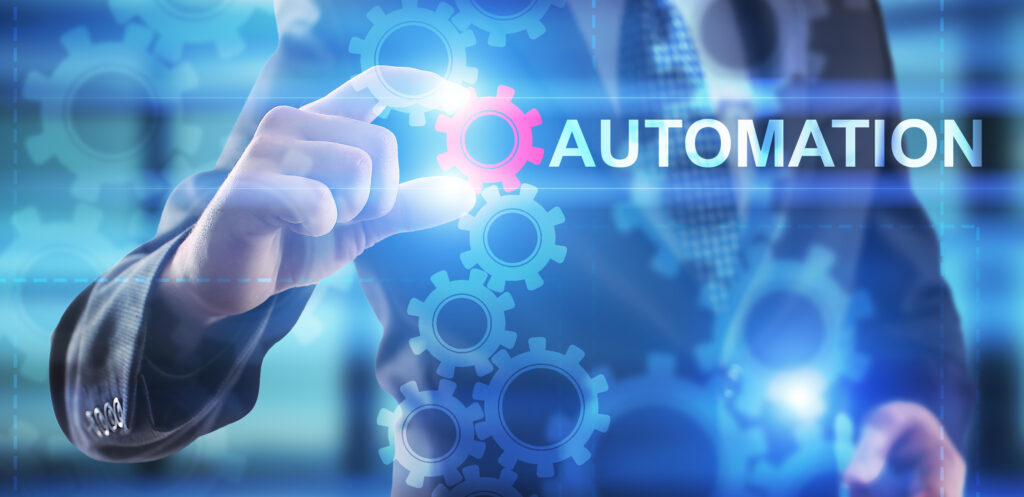We’re entering a period of exponential change in business.
If SMEs don’t move from legacy technology systems to modernise, automate and innovate they’ll be swept away by the age of digital transformation.
Nobody knows quite where AI will lead us, but we do know that if businesses don’t embrace new technologies they won’t survive.
But many companies don’t know where to start or which technologies to embrace.
Organisations that try to bite off too much at the start of their Intelligent Automation journey typically fail to realise returns on their investments for two to three years, by which time funding has dried up.
A better approach is to build your Intelligent Automation capability in incremental steps, propagating the culture of Intelligent Automation over time.
As RPA (robotic process automation) continues to gain pace in UK businesses recent industry successes make this a good place to start your journey to fully embrace AI.
AI and RPA
RPA is the process of using software robots to automate mundane, repetitive tasks.
Once these are automated, companies can look at moving to more complex AI-based automation.
For example, using visual and cognitive intelligence to deliver more advanced automation that draws information from multiple sources and interprets it to deliver improved business intelligence.
But how do we get from here to there? SMEs need to look practically at their infrastructure, workforce and security and consider what they need to change to enable their business to be set on a positive path to digital transformation.
Take infrastructure to start with.
In an ideal world your employees would have secure access and data sharing wherever they are located, as this offers enormous benefits to performance and productivity.
There are a whole host of technologies available from companies like Microsoft, VMWare and Citrix that allow secure and easy access to your business applications and data irrespective of location and device.
Working with a managed services partner to ensure you have the right combination of technology to allow you to create a successful modern workspace will allow you to operate on a ‘pay-as-you-go’ model.
Here you pay, per user, per month and can scale up as appropriate and take advantage of software upgrades without spending vast amounts of capital.
Part of your digital transformation is likely to involve moving your data from on-premise servers to the cloud.
By engaging with a cloud services provider you remove the burden on IT and improve business agility by allowing you to provision apps and desktops faster.
And, you will benefit from the latest security features and management functionality of a modern operating system like Windows 10 that won’t go out of support.
Once your infrastructure and security is sorted the real fun can begin.
Right now, SMEs can start to automate businesses processes using software robots as there are now RPA offerings that use software robots as part of a SaaS offering.
This makes them affordable as well as effective. Combined with Artificial Intelligence-based technologies, the use cases for process automation are even wider, and provide even greater returns.
AI tools for small business
Take for example, a healthcare provider that needs to register each patient as they come to the practice. RPA can automate patient registration ensuring each patient is put into the system as soon as they sign up or sign in.
Your ‘virtual worker’ robot reduces waiting room time freeing up staff to focus on patient healthcare.
Once this basic task has been automated we can then improve user experience by leveraging facial recognition so that patients are automatically checked in when they arrive.
In HR, for example, RPA can be used to ensure each department has the same information about each employee without the typical challenges of multiple system records and repetitive re-entry of information.
Chatbots and virtual workers
It can also be used for absence management and for processing applications saving time for your employees to focus on more strategic work. As a second phase, organisations can then make HR information more accessible by implementing chatbots.
RPA can be used to simplify the process of reporting on credit for thousands of customers. The information required to produce credit reports for one retailer involved accessing data on an inefficient, legacy mainframe system.
Using an RPA ‘virtual worker’ that was able to precisely imitate a human producing one of these reports, the retailer reduced reporting time by 91 per cent creating savings of over £100,000.
For one manufacturing company it was taking an unacceptable 1.5 days to deliver key customer service reports.
They wanted to find a technological solution to expand and improve their services, without increasing costs.
By using a ‘virtual workforce’, reports that previously took this company 1.5 days, are now produced in a mere six minutes – a 300 per cent increase in productivity.
Further reading on artificial intelligence
- Self-employed think artificial intelligence won’t majorly affect the workplace
- The age of A.I – How businesses are utilising artificial intelligence
- UK consumers unaware that they use artificial intelligence daily
AI market forecast
At Ultima, we have been using RPA technology to automate our own back-end operations and we’ve seen productivity rise by a factor of two since implementing the technology across five processes. For example, we automated our forecasting and planning tasks.
Software robots collate real-time sales and marketing information and process all the information they collect during the day to produce detailed forecasts and business intelligence for the next morning. Usually this took eight to ten hours per day of staff time.
As a result, the business has improved business intelligence to plan with, and staff have more time to spend on customer service and strategic thinking.
One contact centre used several different systems and applications, and undertook a high volume of low complexity, repetitive tasks fulfilling service requests.
Their ‘virtual worker’ has streamlined processes and enabled customers to leverage self-service portals for common requests.
By simplifying the service agent process with the automation of tasks, and the introduction of Natural Language Processing (NLP) for extracting key information from emails and messaging chats, their agents are now able to focus on providing the best experience for customers.
AI is accessible and available to SMEs now. Most businesses will have several processes they can automate; some larger businesses will have tens if not hundreds of processes that can be automated.
Working out which ones to automate should be done on a clear ROI basis and by looking at where mundane tasks are hampering staff’s ability to work on more important items.
But remember, it is impossible to embrace AI and work a clear path as to how you can transform your business digitally without an innovation mindset at the top.
Part of creating this change is to understand the art of the possible and recognise the steps that need to be taken to reach the end goal of intelligent transformation.
Definitions
Robotic process automation (RPA) is the use of software and machine learning capabilities to handle high-volume, repeatable tasks that previously required humans to perform them. These tasks can include queries, calculations and maintenance of records and transactions.
Intelligent automation or Intelligent Process Automation (IPA) is a more advanced form of what is commonly known as robotic process automation (RPA). Any large-scale activities or groups of repetitive tasks that draw on or feed information to multiple systems is an intelligent automation candidate. It often refers to the application of Artificial Intelligence and related new technologies, including Computer Vision, Cognitive Automation and Machine Learning to RPA.
Artificial intelligence (AI) is an area of computer science that emphasises the creation of intelligent machines that work and react like humans. It is a very broad term for a wide range of technologies and capabilities which can have a profound impact on organisations in any vertical.
Scott Dodds is the CEO of IT partner Ultima







